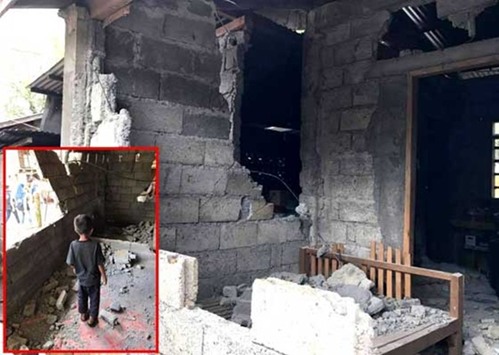The two towns were damaged by the strong tremors in the past six days, making it difficult for residents to access safe and drinking water in the areas, the officials said.
Salma Tamano, public information officer, said the offices of Vice President Maria Leonor Robredo and Sen. Paolo Benigno Aquino are already arranging the delivery of the potable water and water purifiers in response to the needs of the residents.
“They are already arranging the delivery with water companies,” Tamano added.
Relief goods and some materials for camping were earlier distributed separately by the Department of Social Welfare and Development of the province, DSWD Region 12 and the Office of the Civil Defence of the Autonomous Region in Muslim Mindanao (OCD-ARMM).
The military assisted the responding agencies to ensure safety of the public since the first day of the earthquakes.
“As of now, safe and drinkable water is needed in the areas,” Brig. Gen. Manolo Samarita, commanding officer of the Army’s 602nd Infantry Brigade, which has jurisdiction in the areas, said. The Philippine Institute of Volcanology and Seismology (Phivolcs) said the tremors started on April 12 with magnitude 6.0 followed by aftershocks with magnitude 5.3 on April 13, magnitude 5.2 on April 16 and magnitude 4.3 yesterday.
The quakes’ epicentres were all traced to Wao on the border of the provinces of Bukidnon and North Cotabato. More than 300 aftershocks were recorded during the past six days, the officials said.
The quakes prompted the Philvocs to install Kenetic Seismograph ETNA 2 at the Municipal Disaster Risk Reduction and Management Office (MDRRMO) in Wao to monitor the earthquakes’ movement or aftershocks, they added.
They affected 658 families or 2,876 individuals in 11 villages in Wao alone while the officials are determining the number of families affected in Amai Manabilang, a nearby town of Wao formerly known as Bumbaran.No casualties were reported in the series of quakes.
But the quakes damaged 692 buildings in Wao, including seven chapels, 11 schools, nine mosques, a three-storey pension house and a three-storey commercial building, Wao’s MDRRMO said.

